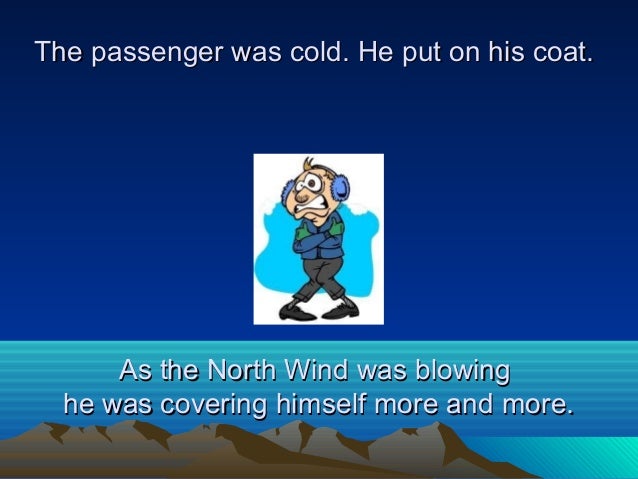
Although Aesop's existence remains unclear, numerous tales credited to him were gathered across the centuries and in many languages in a storytelling tradition that continues to this day.

Very well, growled the North Wind, and at once sent a cold. 'Let us agree,' said the Sun, 'that he is the stronger who can strip that Traveler of his cloak. While they were disputing with much heat and bluster, a Traveler passed along the road wrapped in a cloak. In the few scattered sources about his life, Aesop was described as a slave who by his cleverness acquires freedom and becomes an adviser to kings and city-states. Let us agree that he is the stronger who can strip that Traveler of his cloak, said the Sun. by Aesop The North Wind and the Sun had a quarrel about which of them was the stronger. He is celebrated for a number of fables now collectively known as Aesop's Fables. The haze and smell of smoke from the Canadian wildfires hung heavy over New York, raising concerns about air quality June 6. Aesop (620-564 BCE) was a storyteller that was believed to have lived in Ancient Greece. All the stories story lead to a particular moral lesson. Aesop's fables feature animals, legendary creatures, plants, inanimate objects, or forces of nature that speak, solve problems, and generally have human characteristics.

Who will it be and what is the moral of the story? Find out in Aesop's fable "The North Wind and the Sun". They saw a traveler who was just passing by and they decided that whoever made the man remove his cloak would be proclaimed the strongest. Who do you think is stronger - the Sun or the North Wind? They both found themselves in a dispute because they both thought that they were strongest.


 0 kommentar(er)
0 kommentar(er)
